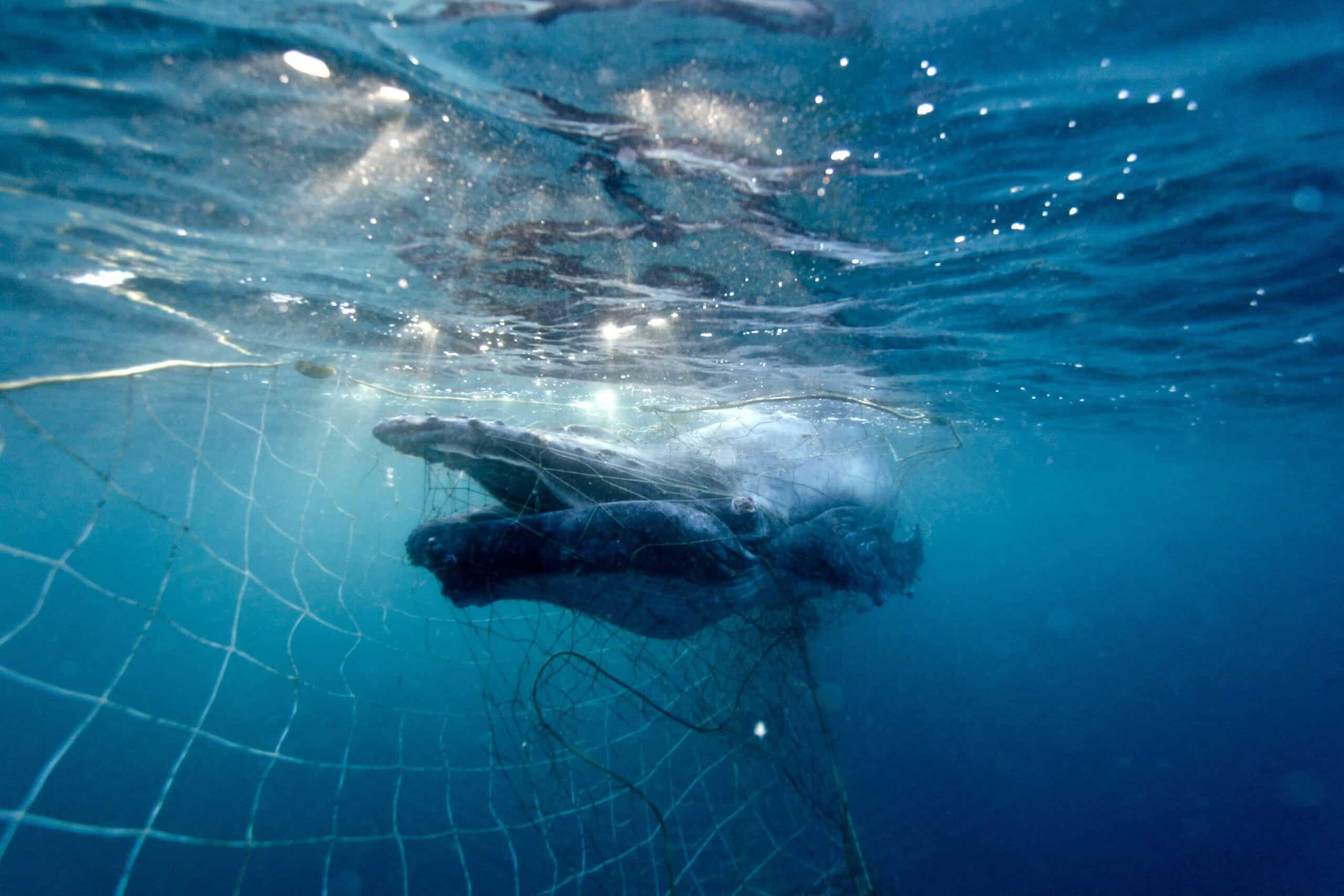Research shows that Australia’s great white sharks are highly related to each other and may consist of fewer than 500 breeding animals. SYDNEY, 24 June 2025: Latest research has found Australia’s great white shark population is much smaller than expected, increasing their vulnerability to further population threats. The population...
When our Humane Society International team first saw the Belgian Malinois, he was sitting forlornly in a cage only slightly larger than he, on a Korean dog meat farm. Dogs belonging to this breed are prized by police departments and the military for their natural ability to detect scents, but Jean Claude, as our staff named this regal and beautiful guy, was neglected and emaciated — all skin and bones. When Adam Parascandola, HSI senior director of animal protection, opened the door of his cage, Jean Claude came out and lay his head on Adam’s lap.
“It was heartbreaking to see that of all that was missing in his life — food, exercise, enrichment — what he wanted most is just the touch of a person,” Adam said.
Luckily for Jean Claude, his days of suffering in what can only be described as the worst kind of hell for dogs are now over. This week, he and nearly 200 other dogs on the farm will be flown into the United States, United Kingdom, the Netherlands and Canada where they will be placed in shelters and will finally have a chance to get all the love and hugs they deserve.

The dogs are housed in barren cages with iron bars for flooring. The bars bite into their delicate paws, especially during the harsh winters. Photo by Jean Chung/For HSI
This is the 13th dog meat farm that HSI has closed down in South Korea. Fewer and fewer Koreans now eat dog meat, and since we started this work in 2015 we have been approached by farmers who want us to assist with closing down their dog meat farms. In this case too, the farmer, who had raised dogs for human consumption for 14 years, sought us out, and with our help will now transition to a more profitable and humane livelihood, a medicinal herb farm.
It is hard to reconcile this barbaric treatment of companion animals with the modern face that Korea presents to the world. This dog meat farm sits just five minutes from an outlet mall with stores selling Nike and Adidas sneakers and high-end dog food and dog outfits for pets. Modern restaurants and coffee shops line the streets. Just a short distance away, the farm itself couldn’t be more depressing: the dogs, no different from those cherished in so many Korean households as pets, are housed in barren cages with iron bars for flooring. The bars bite into their delicate paws, especially during the harsh winters. Some of the animals have untreated injuries that have been left to fester, and skin conditions. A sharpei, who we named Quentin, is almost blind from an untreated eye infection.
The animals have never felt grass under their feet, have scarcely any food, no loving human touch, no enrichment, and nothing to look forward to in their bleak lives.

There are thousands of dog meat farms across Korea where an estimated 2.5 million dogs are trapped in lives of misery. Image: Jean Chung/For HSI
The dogs trapped in this setting belong to a variety of breeds. There are golden retrievers, Labrador retrievers, a Great Dane mix, Tibetan mastiffs, Korean jindos and many more. There are 90 puppies among these dogs, born over just the last few weeks. In the area that houses adult dogs, many cages are empty because consumption of dog meat generally goes up during the recently concluded Bok Nal days of summer in July and August.
I have been to some of these farms since we started doing this work and it is always heartbreaking to see these beautiful animals trapped in hopeless situations where a violent death by bludgeoning or electrocution is usually the only escape. There are thousands of dog meat farms across Korea where an estimated 2.5 million dogs are trapped in lives of misery. While we cannot help each one of them, it gives me hope that we are helping as many as we can, and, more importantly, that we’re providing the government of Korea with a blueprint to facilitate the eventual closing down of all dog meat farms.
What is also encouraging is the fierce public and political debate over dog meat now taking place in South Korea. In the last several months a court fined one farmer for killing a dog for meat. Seoul City announced there will be no more dog slaughterhouses at its Kyungdong Market starting next year, and the largest dog slaughterhouse in the country, Taepyeongdong dog slaughterhouse, has been earmarked for closure. The Korean president has pledged to consider removing dogs and cats from the legal definition of livestock and has noted the need for the government “to consider solutions for dog meat related workers.” And recently the Korean supreme court concluded that killing dogs by electrocution (the favored method of the dog meat trade) is too cruel and breaches animal welfare law.

HSI’s South Korea Campaign Manager Nara Kim with a dog at the farm. Photo by Jean Chung/For HSI
We are proud of the work HSI has done in Korea over the last several years in raising awareness and helping this debate move forward. This is expensive work, given the costs of deploying our staff, closing down the farms and transporting hundreds of animals overseas, not to mention the emotional costs to our staff and volunteers who brave the heartbreak of seeing companion animals is such wretched conditions. But we stick with it because we know we can — and are — making a difference.
We are excited this week as we begin and continue the work of transporting this latest group of dogs to new homes and new lives. They have been gobbling up the dry dog food and treats our staff members have been giving them, and they greet their rescuers each day with eager barks, tail wags and cuddles. Already they are one happy, tumbling, playful bunch who will undoubtedly bring lots of joy to some lucky people.

The dogs belong to a variety of breeds. There are golden retrievers, Labrador retrievers, a Great Dane mix, Tibetan mastiffs, Korean jindos, and many more. There are 90 puppies, born over just the last few weeks. Photo by Jean Chung/For HSI
P.S. I want to express the deepest thanks to music mogul Simon Cowell for his support in closing down this farm. Simon who has long advocated for our work in Korea to end the consumption of dog meat, and has spoken out strongly against the trade, told Good Morning Britain’s Pip Tomson last year, “It’s like eating your friend. It’s the fact you’re eating such a kind, helpless, sweet animal.”
Blog image: This is the 13th dog meat farm shut down in South Korea by HSI. Image: Jean Chung/For HSI


